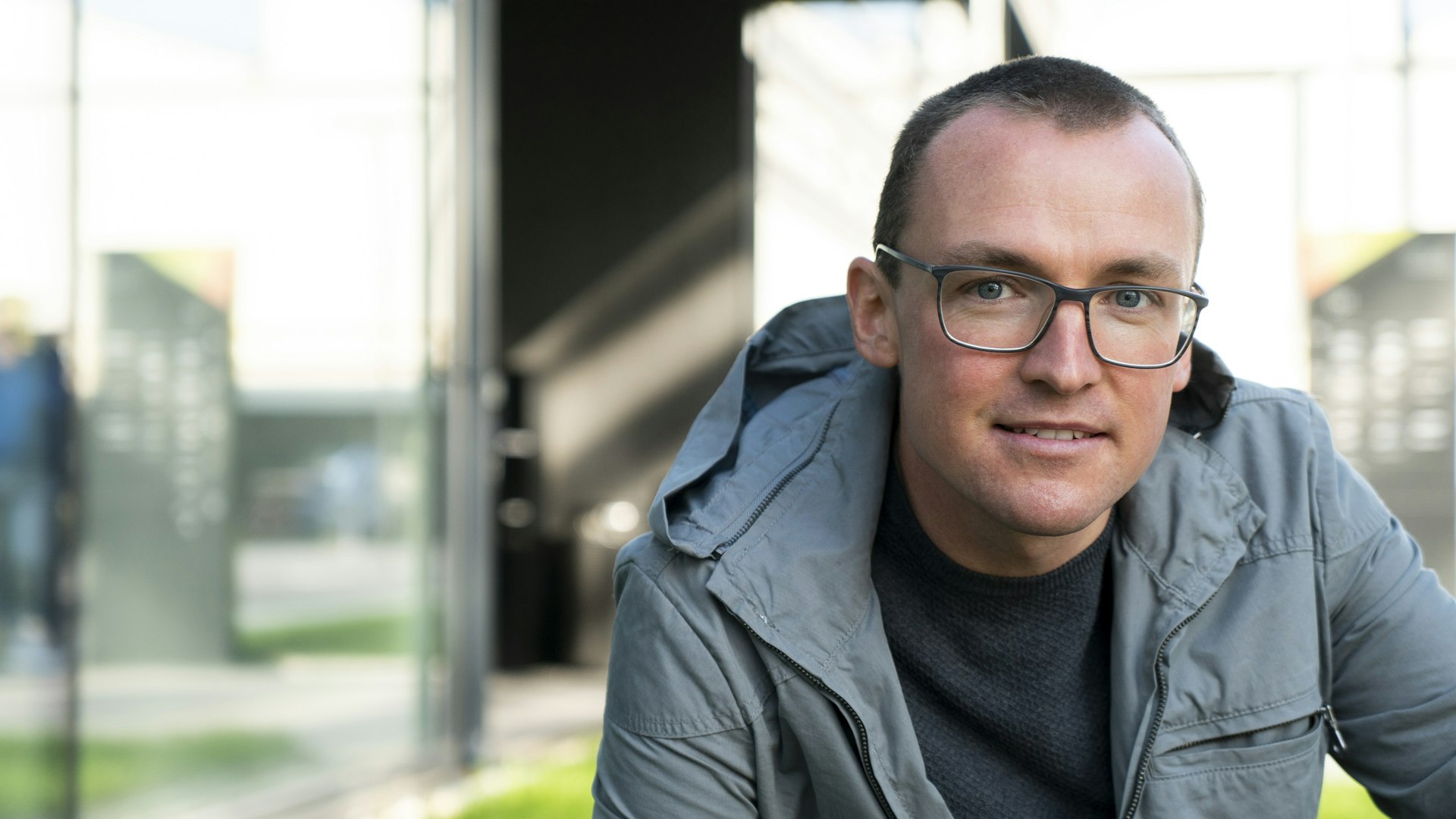magazine_ Interview
"In an emergency situation, it's essential to have guidelines."
Interview with Simon Rauch, co-head of the Covid intensive care unit in Merano and researcher at the Institute of Mountain Emergency Medicine.
Resuscitation doctor Simon Rauch
In recent weeks, the daily routine of resuscitation doctor Simon Rauch has been overwhelmed by the coronavirus emergency. Owing to his experience as a scientist, as well as an on ward doctor, he has been chosen to manage the treatment protocol for Covid-19 patients at Merano Hospital.
Can treatment protocols be established for a disease that has no known cure?
Simon Rauch: They have to be. In an emergency it is especially essential to give guidelines, even if these are only partly based on scientific evidence. Individual medicine evaluates the characteristics of each patient, but it would be unthinkable for every doctor to intervene each time from scratch during such an urgent situation.
How do you define the standards for treatment?
Rauch: Right now, we simply do not have time for traditional channels such as conferences or scientific journals. Besides, so far there have been no major scientific studies on the subject. We’re utilizing our own personal contact with other colleagues and social media - a lot, for example WhatsApp chats with dozens of resuscitation doctors from all over the world. Colleagues from the most affected hospitals post their experiences and these quickly become references. Together with colleagues from Eurac Research, we have translated some of the guidelines from Lombardy into German and English and circulated them in Austria, Switzerland and Germany.
The mechanical ventilation of these patients is different, because the pulmonary mechanics differ from the serious respiratory deficiencies we are otherwise used to seeing and treating.
What is the role of scientific journals at this particular time?
Rauch: They’re working in a different way too. Even the New England Journal of Medicine, a historical journal that works only with refined statistics and ongoing cases that last for months, has now, very quickly begun to publish anecdotal cases, i.e. case studies that affect few people. Now we need to circulate and update the information much faster.
What makes this disease so different from the ones you know about?
Rauch: Unlike the severe respiratory deficiencies we know, for most patients with Covid-19 the lungs maintain their volume and elasticity. The cause of severe hypoxemia, i.e. lack of oxygen in the blood, seems to be a deregulation of pulmonary perfusion (abnormal blood flow to the lungs, Editor's note). In addition, microthrombus is often formed in the pulmonary vessels and the right ventricle of the heart seems to suffer particularly because as it pumps, it finds a lot of resistance. In some cases, perimyocarditis and renal failure have also occurred. In addition to the lesions caused by the virus, there is a marked inflammatory reaction in some patients, which causes further damage. It is also impressive how many young patients are in critical condition; unlike the elderly, their mortality rate is low, but they also need two to three weeks of intensive care.
Is your intervention in the ICU different?
Rauch: In part, yes. We use pharmacological treatments, for example anticoagulants to prevent clots, antivirals and anti-inflammatory drugs, which as yet, have little or no scientific proof. The mechanical ventilation of these patients is also different, because the pulmonary mechanics differ from the serious respiratory deficiencies we are otherwise used to seeing and treating.
How has your daily routine changed?
Rauch: Working with all the protective equipment is exhausting, you sweat and have difficulty breathing through filters. We have to plan everything, including our breaks carefully and sparingly, so as not to waste suits and masks.
What about the emotional impact?
Rauch: There is a lack of contact: with colleagues you don't recognise except for their names written in marker on their suits and with patients and families. We try to get them in touch by phone, when they are able, but it is difficult. We are in absolute isolation, but the whole resuscitation team, from cleaners to nurses to doctors, is motivated and is doing a great job.
Simon Rauch
Doctor specialising in anaesthesia, resuscitation and internal medicine. After his studies in Innsbruck he practised in South Tyrol, Regensburg and Munich. A scholarship took him to London and Brussels before his return to Merano in 2019. He holds a PhD from the University of Innsbruck and has been a researcher at the Institute for Emergency Mountain Medicine of Eurac Research since 2014. His last study was on suspension syndrome, which affects climbers, but also all workers on construction sites who use harnesses and are at risk of falling. He has won several awards both as a doctor and as a clarinetist.

